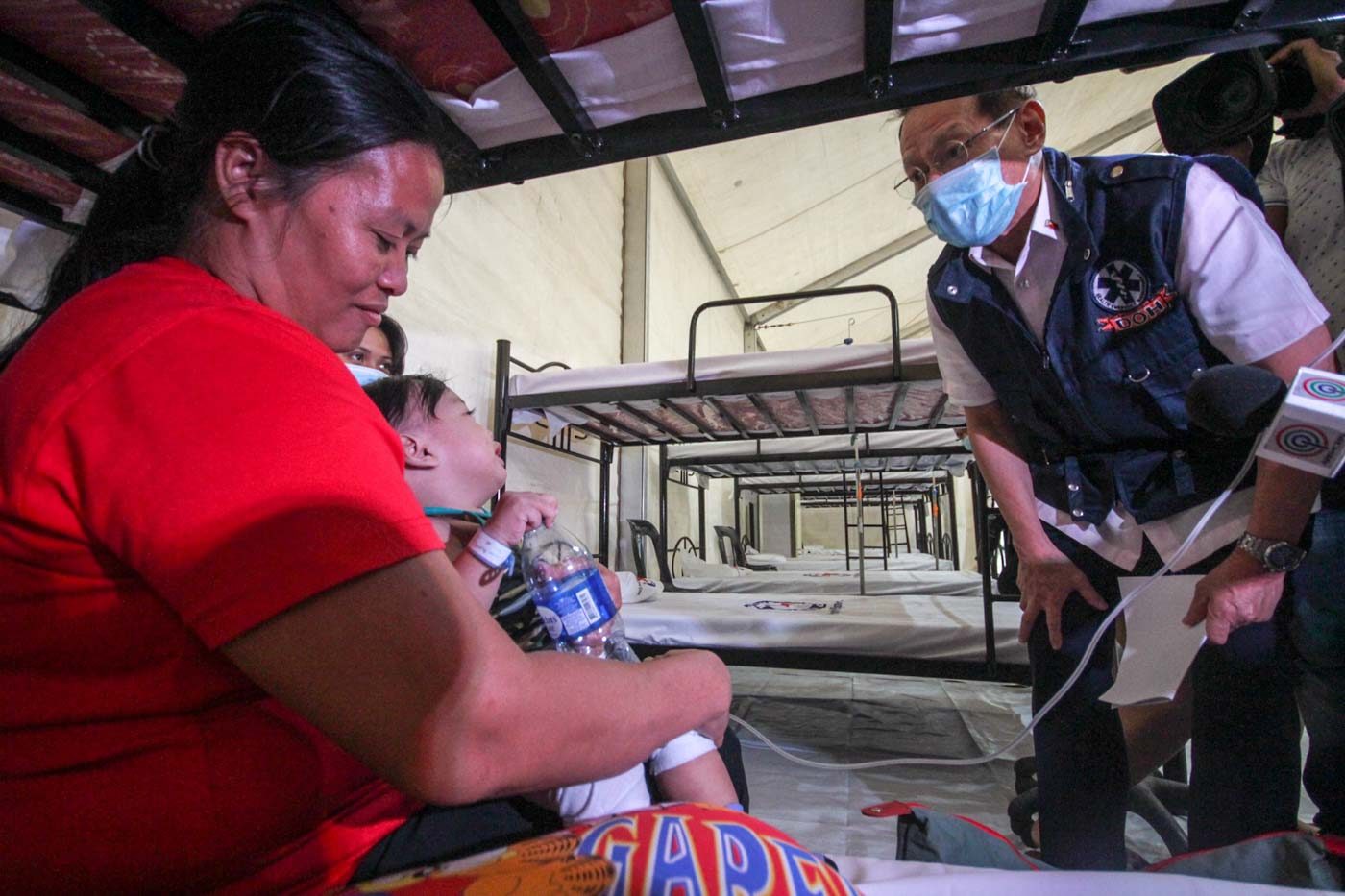SUMMARY
This is AI generated summarization, which may have errors. For context, always refer to the full article.

MANILA, Philippines – President Rodrigo Duterte signed a new law that strengthens the capacities of the Department of Health (DOH) in reporting and responding to infectious and communicable diseases like dengue, measles, smallpox, and cholera.
The new law – Republic Act No. 11332 or the Mandatory Reporting of Notifiable Diseases and Health Events of Public Concern Act – is critical as the DOH recently declared a National Dengue Alert due to the rising cases of the disease in various regions in the country.
The declaration came around 5 months after the health department declared a measles outbreak in February. (READ: DOH to declare measles outbreak over only when vaccination target reached)
Signed by Duterte on April 26 and made public to reporters on Tuesday, July 16, RA No. 11332 mandates the DOH, particularly its Epidemiology Bureau, to continuously develop and upgrade the list of nationally notifiable diseases and health events of public concern to aid disease surveillance and response efforts on the national and local levels.
The list of diseases is to be maintained through public health disease surveillance and response systems such as the Field Health Service Information System and the Philippine Integrated Disease Surveillance Response, both overseen by the Epidemiology Bureau.
The law also requires all public and private physicians, health facilities, laboratories, as well as non-government organizations to immediately report notifiable diseases to DOH.
The new law also calls for the health department to coordinate with local governments to establish functional Epidemiology and Surveillance Units (ESUs) not only in local DOH outposts but also in public and private health facilities, ports and airports.
Another objective of the law is to expand collaborations beyond traditional health partners, which is why it also wants agricultural agencies, veterinarians, environmental agencies, law enforcement entities, and transportation and communication entities, among others, involved in disease surveillance.
RA No. 3573 likewise gives the health secretary the authority to declare epidemics of both national and international concern. In cases of national security, though, the law provides that the president can declare a state of public health emergency and mobilize government agencies in response.
Provincial, city, or municipal health officers, meanwhile, can only declare an outbreak in their respective areas if there is sufficient scientific evidence as per “disease surveillance data, epidemiologic investigation, environmental investigation, and laboratory investigation.”
Violators of the law will be fined not less than P20,000 but not more than P50,000, or face imprisonment of not less than one month but not more than 6 months. They may also face both jail time and a fine, upon the discretion of courts.
The new law repeals RA 3575 or the Law on Reporting of Communicable Diseases, which was established in 1929. – Rappler.com
Add a comment
How does this make you feel?
There are no comments yet. Add your comment to start the conversation.